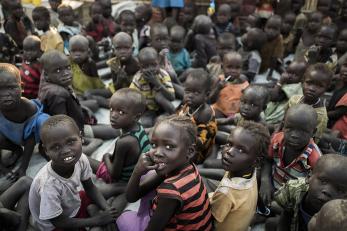
Violence has erupted anew in South Sudan, reigniting the bitter rivalry between President Salva Kiir and former Vice President Riek Machar.
The collapse of the 2018 peace agreement has plunged the nation back into conflict, fueling intercommunal tensions and prompting warnings from the United Nations about a potential regional conflagration.
Since March, the South Sudanese army has launched a major offensive against forces loyal to Machar, who remains under house arrest in Juba. This sidelining effectively ends the fragile power-sharing arrangement established in 2018 and has reignited fears reminiscent of the civil war that raged from 2013 to 2018, claiming nearly 400,000 lives. Analysts warn that this political marginalization is deepening distrust in the central government and exacerbating local conflicts.
UN Under-Secretary-General for Africa, Martha Pobee, told the Security Council: “The current posture of the army and ongoing operations risk exacerbating inter-communal conflicts.” She added that if fighting continues, neighboring countries, particularly Uganda, could become entangled.
Late July clashes on the border between Ugandan and South Sudanese forces, which resulted in multiple casualties, underline the risk of a regional spillover.
The humanitarian situation is dire. More than 7.7 million people face acute food insecurity, and 83,000 are on the brink of famine.
The influx of refugees fleeing civil war in Sudan is compounding the pressure on a country already weakened by corruption, political paralysis, and the loss of oil revenues. Aid organizations have repeatedly warned of the country’s descent toward collapse.
The UN’s message is clear: without urgent containment, South Sudan’s crisis could destabilize the Horn of Africa and the Great Lakes region.
Ethnic divisions, entrenched political rivalries, and interference from external actors create a volatile environment.
With national elections scheduled for December 2026, the country appears far from ready to achieve sustainable peace or democratic stability.
The international community faces mounting pressure to act, as South Sudan teeters on the edge of a broader regional emergency.



